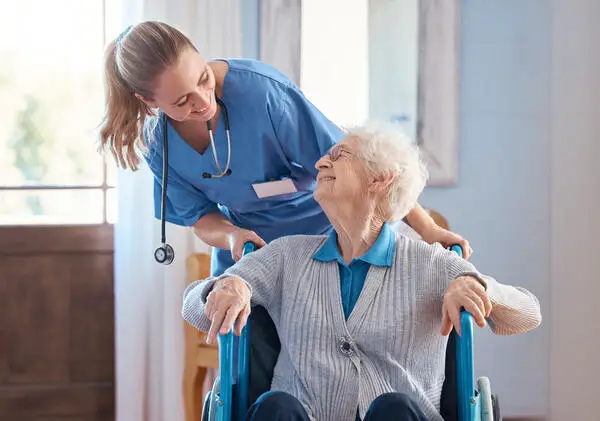
Cancer Care For Seniors: A Complete Guide
Caring for senior cancer patients can be challenging. They require maximum attention from family or hired caregivers to cope with the situation and improve their health, not to mention some treatments that could be tough on them given their health, age, and mobility issues.
Thus, caring for cancer patients requires skills and knowledge. For example, if you are taking care of a senior with uterine cancer, it is best to understand uterine cancer causes and remedial measures to know what to do while caring for them. You can also look up sources on the internet for guides on cancer care for seniors, like this one.
If you're living with a senior cancer patient, below is a guide with insights on how to take care of seniors with cancer.
Common Cancers In The Seniors
Cancer is a widespread disease and is more common in aging adults. Although it can affect all ages, there are specific cancer types that are common to senior adults. The probability of an old person contracting them is higher compared to others younger than them. They include the following:
- Bladder Cancer: This cancer is common in people between the age of 50 to 80 years. Your doctor can use your bladder history to evaluate the risk factors associated with bladder cancer, such as blood in urine and frequent urination, hence detecting it early on.
- Colon Cancer: It's common in seniors aged 67 and above. The good news is it can be diagnosed and prevented before it multiplies. The doctor carries out a colonoscopy exam to look for pre-cancerous growths. When detected, they can be removed before they spread and develop into full-blown colon cancer.
- Lung Cancer: It's among the deadliest cancers, affecting many seniors over 70 years. The doctors can use a Computerized Tomography (CT) scan to detect the tumor. If the senior was a smoker in their youth, a routine check-up could be appropriate if they start experiencing breathing difficulties or chronic respiratory problems.
- Prostate Cancer: It's commonly diagnosed in men over 65 years. The doctor can detect prostate cancer through a blood test or a physical exam. It's treated through surgery, radiation, and chemotherapy.
Knowing the prevalent types of cancer among seniors are vulnerable to help you understand the precautionary measures to take and how to care for those affected. It'd be best to watch out for telltale signs so you can get them examined. Note that an early diagnosis can help contain cancer effects from aggravating.
Cancer Risk Among Seniors
The human body's immunity weakens naturally with age. Hence, they are more susceptible to cancer. Additionally, seniors are likely to have co-existing health issues such as high blood pressure and diabetes. This weakens the body's defense system, making them prone to chronic diseases.
Since the body is exposed to several other treatments prior to the escalation of cancer, the body could have a reduced response rate to the treatment plans aimed at treating cancer.
On the other hand, cancer puts seniors at risk of infections. The infections arise from complications in the body tissues and cells. When these wear out, the body's fighting ability against diseases is compromised.
Choosing The Right Treatment Option
Since older adults may have a pre-existing health condition, cancer treatment may be challenging. Additionally, the body may respond differently to specific treatments. Thus, it's advisable to follow professional guidance on adult cancer treatment.
Depending on the stage of your cancer, some treatment options might not be appropriate. However, the doctor should be best positioned to guide you. On that note, some viable options include the following:
- Chemotherapy: It's a drug treatment plan that uses powerful anti-cancer drugs to treat patients. It's more effective since the cancerous cells multiply quickly.
- Radiation: This treatment uses high-intensity radiation to kill cancer cells and shrink tumors.
- Surgery: The treatment plan involves going under the knife. The doctor removes the affected part to inhibit the disease's growth and spread.
- Stem cell transplant: The treatment involves restoring blood cells destroyed by the cancerous cells.
- Hyperthermia: This treatment includes heating the body tissue to high degrees to kill the cancer cells present in the body.
In most cases, cancer treatments are combined. The physician can help you make an appropriate decision on the right treatment for your senior cancer patient. Again, making an informed decision when choosing a treatment is essential. It's also advisable to involve other family members in the treatment decision. Often, they have a part to play in ensuring a comfortable and offering the patient adequate support.
Conclusion
Cancer care for seniors is slightly different from young patients with the disease. They require maximum attention and meticulous care. The treatment options depend on the stages of the cancer. It's best to liaise with the doctor on the best treatment option. After treatment, ensure the senior receives adequate support to fast track their recovery.